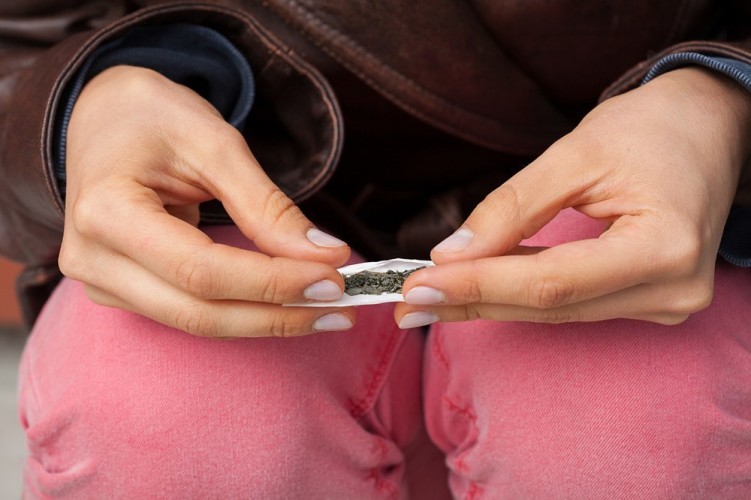
Marijuana is well-known for being the most commonly-abused illicit drug in the world. Marijuana itself is a dry shredded assortment of stems, leaves and flowers of the hemp plant – cannabis sativa. Whenever marijuana is burned it emanates a distinctive, typically sour-sweetish odor.
Is Marijuana Addictive?
Yes, marijuana can prove to be extremely addictive. This is due to the fact that as the user continues to consume marijuana, it leads to the over-stimulation of the cannabinoid system which subsequently leads to changes in the brain that ultimately leads to addiction.
It’s important to note that marijuana addiction is the same as any other addiction in the sense that the person will not be able to stop using marijuana even though it may interfere with various aspects of their life. As a matter of fact, it’s estimated that 9 percent of all marijuana smokers worldwide will ultimately become dependent on it.
Once An Individual becomes Addicted What Are The Signs And Symptoms Of Marijuana Abuse?
Even though many people occasionally use marijuana on a recreational basis, some users ultimately abuse marijuana and subsequently become addicted to the effects that it provides. This itself can lead to a variety of behavioral changes. As such, some of the behavioral changes that are indicative of being a symptom of marijuana addiction, including:
- Impaired coordination
- Distorted perceptions
- Ongoing problems that are associated with the ability to learn or recall memory
- Difficulty when it comes to problem solving related activities and tasks.
- Brain fog
- Loss of control
- Paranoia
- Anxiety
- Lack of motivation
In addition to the symptoms that were mentioned above, another common indicator of marijuana addiction is the side effects that are associated with withdrawing from marijuana for more than
24 hours, which include:
- Insomnia
- Cravings
- Restlessness
- Physical discomfort
- Irritability
- Mood swings
- Decreased appetite
How Can Marijuana Abuse Affect Your Day-To-Day Life?
As mentioned before, marijuana abuse can lead to problems with learning, mood and memory. In addition to that, it can have a negative impact on the interpersonal relationship you have with family members, friends, coworkers and colleagues. It’s also worth noting that people who typically smoke marijuana on a daily basis may function at a reduced intellectual level all the time.
Long-term marijuana abuse can also drive an individual to exhibit compulsive drug-seeking behaviors, despite the obvious effects that those compulsive behaviors may cause. For example, someone who is addicted to marijuana may have such a strong craving to smoke that they may miss a couple days from their job, fail to show up at family functions, as well as isolating themselves from friends simply because they have a compulsive desire to smoke marijuana.
In retrospect to abuse, it is also referred to as being a gateway drug that essentially desensitizes or, rather, de-stigmatizes the whole idea of illicit drug use. Meaning, due to the euphoric effects that marijuana provides, marijuana abusers are more susceptible to abuse other illicit drugs such as heroin and cocaine.
Does Marijuana Kill Brain Cells?
Many people ask ‘does marijuana kill brain cells?’ In all actuality it does. The main active compound in marijuana is delta-9-tetrahydrocannabinol (THC). Whenever an individual smokes marijuana, THC passes from their lungs and into their bloodstream, which subsequently carries it to the brain.
THC has the ability to act on specific areas of the brain known as cannabinoid receptors. Once THC stimulates these receptors, it causes a series of reactions which subsequently lead to the destruction of brain cells as well as the manifestation of the high that many abusers repeatedly seek.
As such, it is not the marijuana plant itself that people become addicted to, but rather the chemical compound within it – THC. THC or marijuana addiction is a serious medical condition that shouldn’t be taken lightly.
Fortunately, however, there are several treatment options available that can help users to get off marijuana permanently.
Marijuana Detox
One of the reasons why marijuana is so hard to quit is due to the fact that the active compound within it, THC, lingers in the bloodstream for an extended amount of time. As a result of this, until the THC leaves an individual’s system, they will continually experience withdrawal symptoms that are associated with marijuana abuse, making it harder for them to quit.
How Do Detox Remedies Work?
If an individual wishes to quit marijuana, they will need to flush their bodies of THC to make this process significantly easier. Fortunately, there are several different products available that can help individuals when it comes to detoxing their system.
Detox Products
A wide majority of marijuana detox products can flush the body of any detectable instances of THC. This includes drinks, shampoos, capsules and chewable tablets. However, it’s worth noting that not only can these products be especially debilitating on the body, in many, if not most cases, they will only lower the amount of THC that’s within the body as opposed to flushing the body of THC completely.
Self-Help Guides
In addition to various detox products, there are also an abundance of self-help detox guides that are available as well.
The major benefits with these guides are that they provide some useful information about some home remedies and tips marijuana abusers can consider when it comes to detoxing their system naturally. In addition to that, these self-help guides provide information about some ways in which they can live a life that’s free from marijuana use.
For example, Quit Weed is a digital downloadable self help guide that provides a wealth of information about some ways that individuals can detox natural from the comfort of their homes as well as information that they can utilize to heighten their chances of success, when it comes to quitting marijuana for good.





